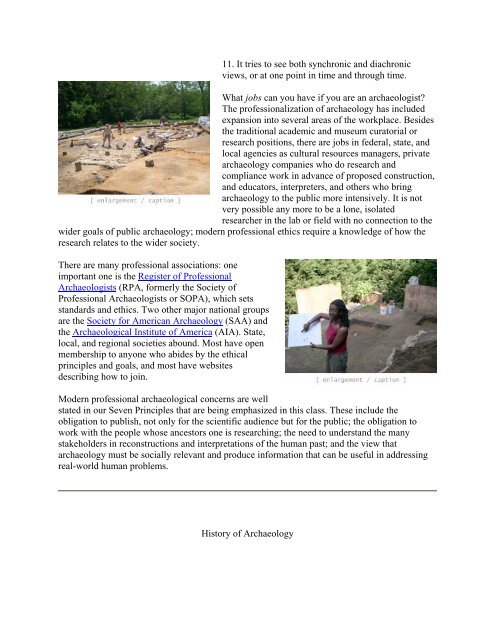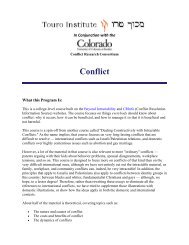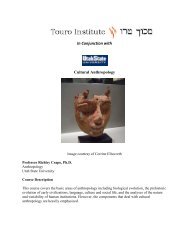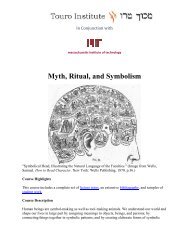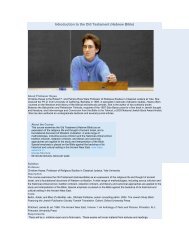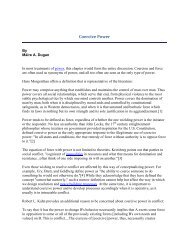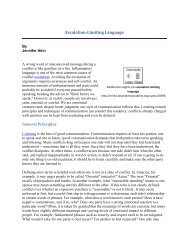INTRODUCTION TO ARCHAEOLOGY Nancy White - Touro Institute
INTRODUCTION TO ARCHAEOLOGY Nancy White - Touro Institute
INTRODUCTION TO ARCHAEOLOGY Nancy White - Touro Institute
Create successful ePaper yourself
Turn your PDF publications into a flip-book with our unique Google optimized e-Paper software.
11. It tries to see both synchronic and diachronic<br />
views, or at one point in time and through time.<br />
What jobs can you have if you are an archaeologist?<br />
The professionalization of archaeology has included<br />
expansion into several areas of the workplace. Besides<br />
the traditional academic and museum curatorial or<br />
research positions, there are jobs in federal, state, and<br />
local agencies as cultural resources managers, private<br />
archaeology companies who do research and<br />
compliance work in advance of proposed construction,<br />
and educators, interpreters, and others who bring<br />
archaeology to the public more intensively. It is not<br />
very possible any more to be a lone, isolated<br />
researcher in the lab or field with no connection to the<br />
wider goals of public archaeology; modern professional ethics require a knowledge of how the<br />
research relates to the wider society.<br />
There are many professional associations: one<br />
important one is the Register of Professional<br />
Archaeologists (RPA, formerly the Society of<br />
Professional Archaeologists or SOPA), which sets<br />
standards and ethics. Two other major national groups<br />
are the Society for American Archaeology (SAA) and<br />
the Archaeological <strong>Institute</strong> of America (AIA). State,<br />
local, and regional societies abound. Most have open<br />
membership to anyone who abides by the ethical<br />
principles and goals, and most have websites<br />
describing how to join.<br />
Modern professional archaeological concerns are well<br />
stated in our Seven Principles that are being emphasized in this class. These include the<br />
obligation to publish, not only for the scientific audience but for the public; the obligation to<br />
work with the people whose ancestors one is researching; the need to understand the many<br />
stakeholders in reconstructions and interpretations of the human past; and the view that<br />
archaeology must be socially relevant and produce information that can be useful in addressing<br />
real-world human problems.<br />
History of Archaeology


